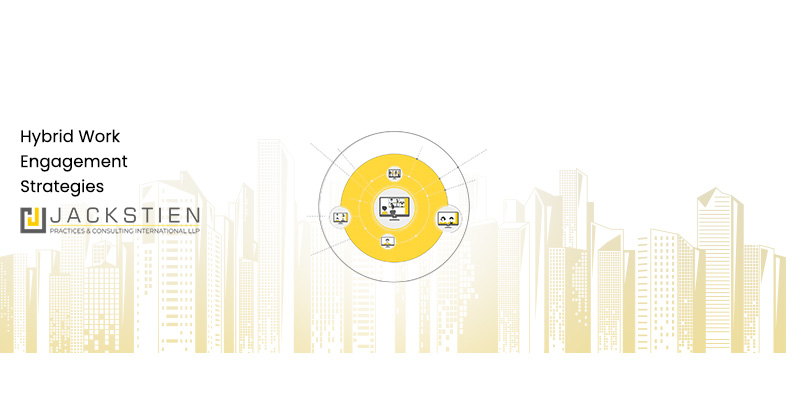Maybe money does grow on trees.
Depends on how you imagine a tree to be.
Like millions worldwide, I shifted to remote work as soon as the pandemic hit.
I work as a content marketing lead at an advertising agency in Delhi. The agency told its employees that this was a temporary arrangement in the face of a crisis and that we would get back to ‘normal’ as soon as things looked better.
Roughly two and a half years later, I still work remotely and go to the office once every three months for a casual meet-up that my boss hosts. The pandemic has begun to subside, but my office has decided to become a remote-first organization.
As I live my life that suddenly feels a lot more complete and free, I often ask myself just one question – it doesn’t make sense to go to the office every day and do the same work that I can do from home.
Then why did I never think of it? How were all of us okay with the conventional model of work, and why did remote work not make it as mainstream as it is now?
How much time and money would I have saved all these years?
Life is so much more than work, then why did I never question the fact that work took away the larger part of my day? God, we were commuting to and from the office? Every day? For hours? Why do I want to continue this rant?
ANYWAY!
Remote work, apart from giving me more time and freedom to do things other than work, has led me to save so much money over these years.
And I am not alone. Companies and employees bring down their average spending when they adopt distributed teams as a working model.
Let’s break down the areas in my life that now need to be spent less on and the aspects that have benefited as a result of that.
Commuting, Car & Fuel
This is the most obvious one but I will try making it more detailed so that readers can get a better picture.
We have a single car at home that my husband and I alternatively used to commute to our workplaces. One of us, therefore, had to take the metro to work.
The fuel charge for one day of commuting by car would be close to Rupees 250, and the metro tickets would cost us Rupees 60 every day.
Then there were parking costs as well.
The building where my office is located would charge me Rupees 40 every day to park my car for eight hours. For my husband’s place of work, it was Rupees 30.
This means that together we spent Rupees 350 for office commute every single day. And what is the figure for a whole month of, say, 26 working days?
Rupees 9,100.
But there’s more.
The car we owned charged us a monthly EMI of Rupees 19,000.
Additionally, we paid a monthly maintenance charge of Rupees 2,500 for the car.
When we shifted to remote work, we realized we didn’t need the car as much. There was no point in incurring costs for a vehicle that will be used rarely.
We decided to give the car to our relative who now pays for the EMIs.
If you add up everything, remote work cut down costs of commute, parking, car EMI and maintenance.
Every month, we saved Rupees 30,600. Simply by working remotely.
Hint: That’s a lot of money.
Food
When I would go to the office every day, I swear time would just run faster.
It is a universal problem, by the way. A CareerBuilder study revealed that 25 per cent of workers in the U.S struggle to arrive at work on time. Also, Indian employers are very strict with employee tardiness.
The point is that I would often not have time to make breakfast and eat it. I would grab a Subway sandwich at least two times a week.
It cost me around Rupees 160.
For what? Toasted bread with vegetables and a spoonful of sauce in the middle? Illegal.
Also, my husband would get a coffee and a snack too. That makes for Rupees 200.
Together we spent Rupees 360 on outside food at least two to three days a week.
Our combined food cost would come to Rupees 3,600 every month.
And that’s when I have accounted for only ten days a month of breakfast from outside.
With remote work, this cost has been eliminated.
House-Help and Babysitter
My daughter is two years of age. Since her grandparents are in the village, we had to hire a babysitter to look after her while we went to work.
We paid a monthly fee of Rupees 4000 for the babysitter’s services.
On rare days, she was required to stay in for extra hours when my husband and I both had commitments after office hours.
Our house-help would cook lunch, do the laundry, clean the house and prepare dinner before leaving at 9 PM every day.
She charged Rupees 6,500 a month.
Now she only comes in to clean and charges Rupees 2,500 a month.
When I began working remotely, I didn’t need a babysitter. I would simply keep an eye on my daughter while working at my desk. If she needs something, it only takes me five minutes to tend to her.
Since we are at home the entire day, taking up house chores doesn’t look like a task anymore. My husband and I have divided tasks, and everything gets done seamlessly.
Remote work has brought flexibility and freedom in the sense that my boss is only concerned about my deliverables and whether I am turning them in on time.
My workplace has encouraged me to integrate work and life. For example, I finish up my meetings for the day by afternoon and then cook and eat lunch. I have scheduled an evening slot for work and that is why my afternoons are usually free.
By diminishing the house-help fees by only calling her in for cleaning and not requiring the babysitter at all, I save Rupees 8,000 a month.
If we add up all the costs that have been cut down and saved, it comes to a figure close to Rupees 20,000.
Together, as a couple, we save Rupees 42,200 a month only through working remotely. Over a year, these savings pile up to lakhs – Rupees 5,06,400 to be precise.
Imagine!
What did we do with all the money that we saved?
We renovated our house and got a vegetable garden – something that my husband has wanted for a long time. We hired a gardener as well.
The point is not just that remote work has saved us a lot of money.
It is also that this disruptive model of work allows us to spend on things we want without having to feel guilty or extra careful about it.
Life just feels better and more comfortable, and I swear, we still feel like we are living beyond our means even though we actually aren’t.
(Note – This is a fictionalised account written by our team – but the economics is very real as you can see)
ABOUT THE AUTHOR(s)
People Practices, Jackstien Practices


